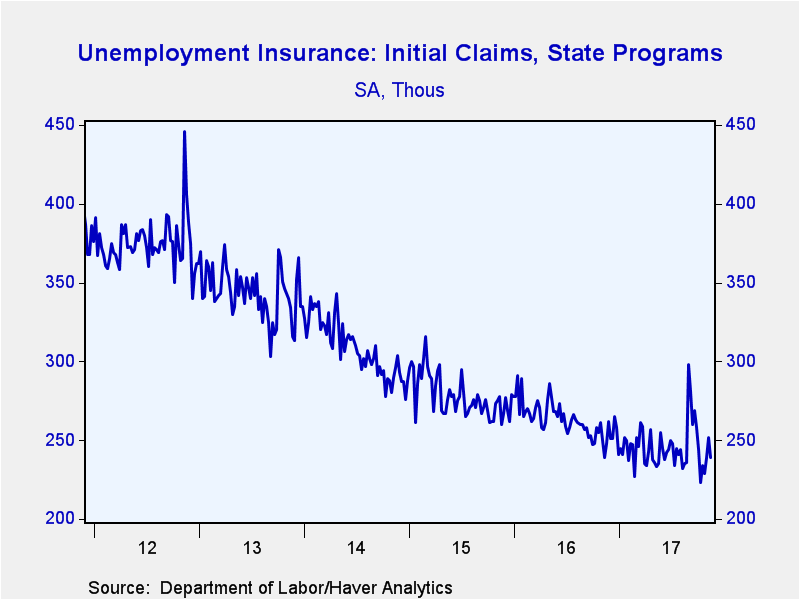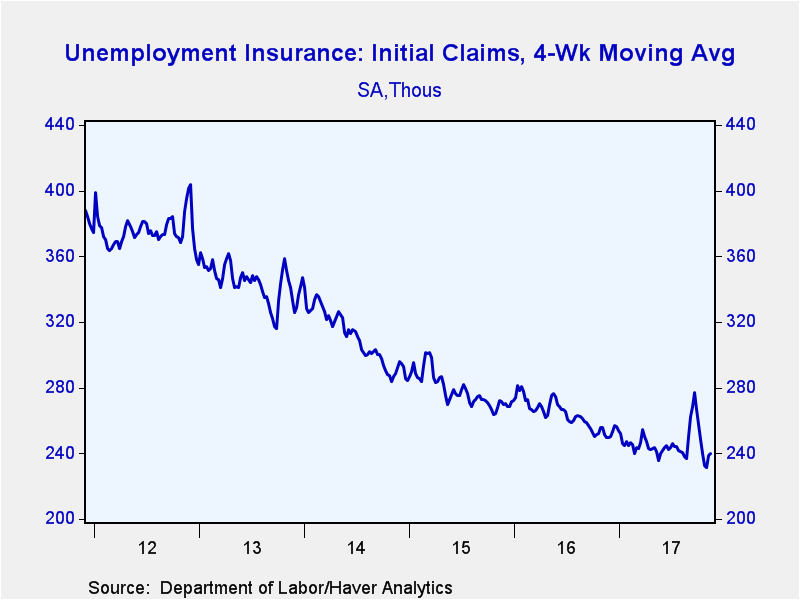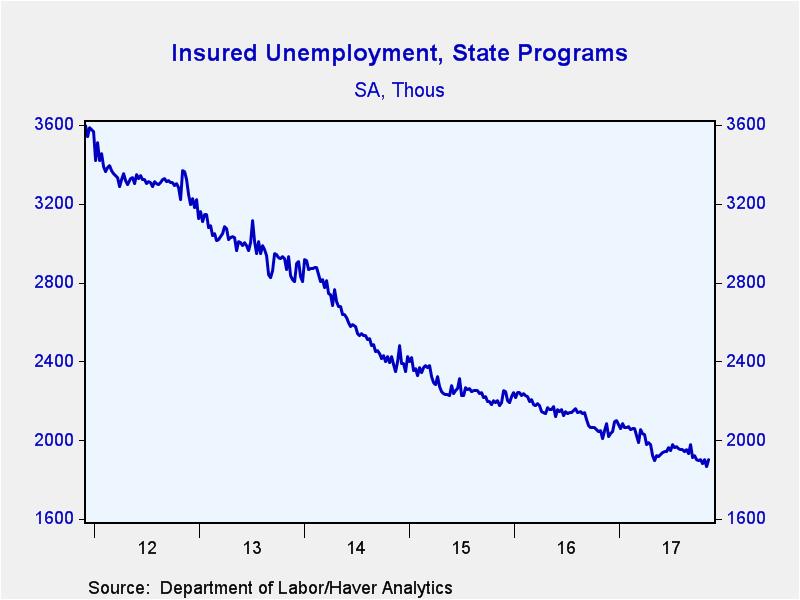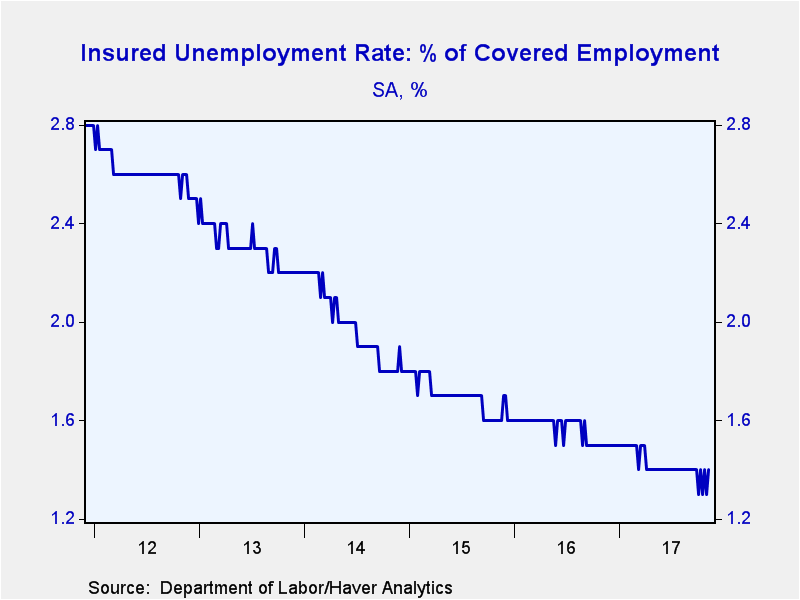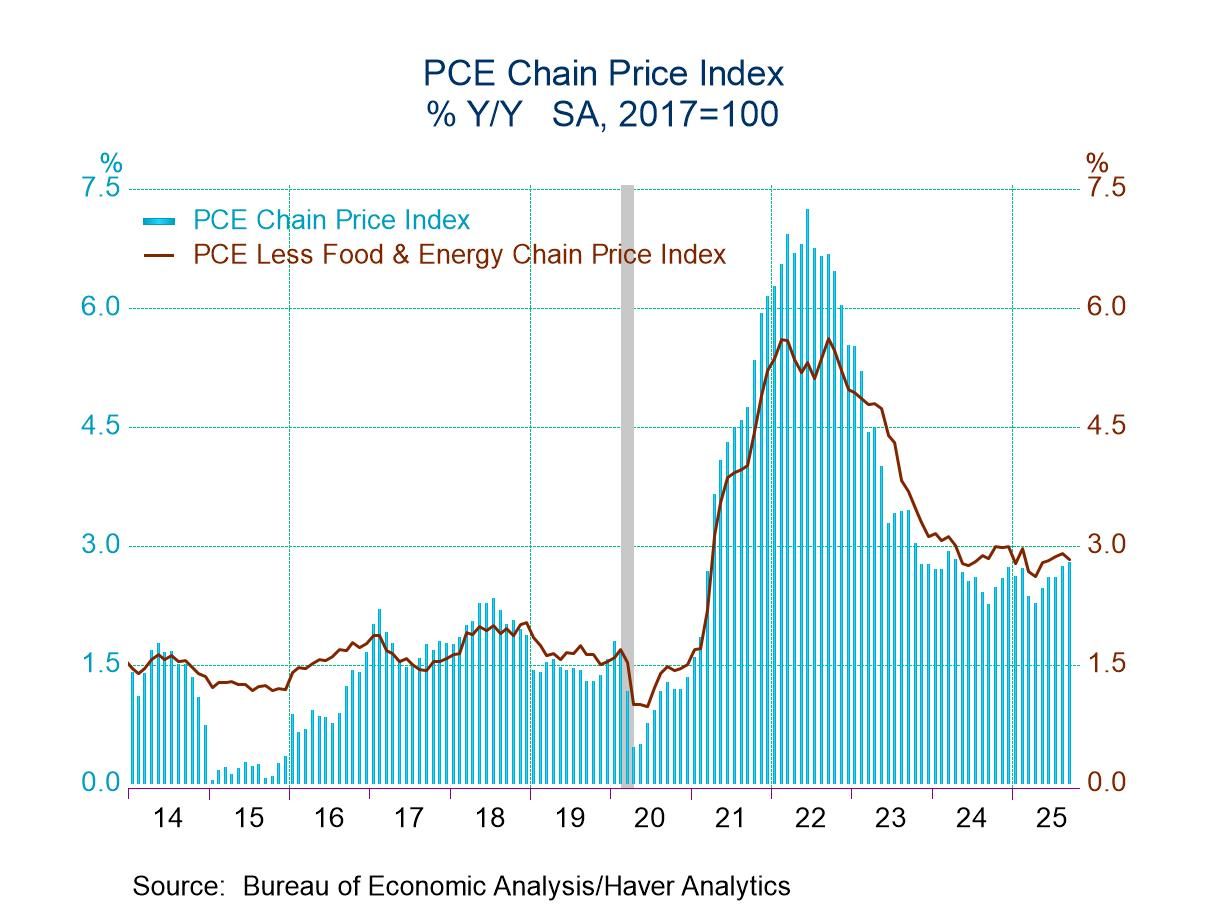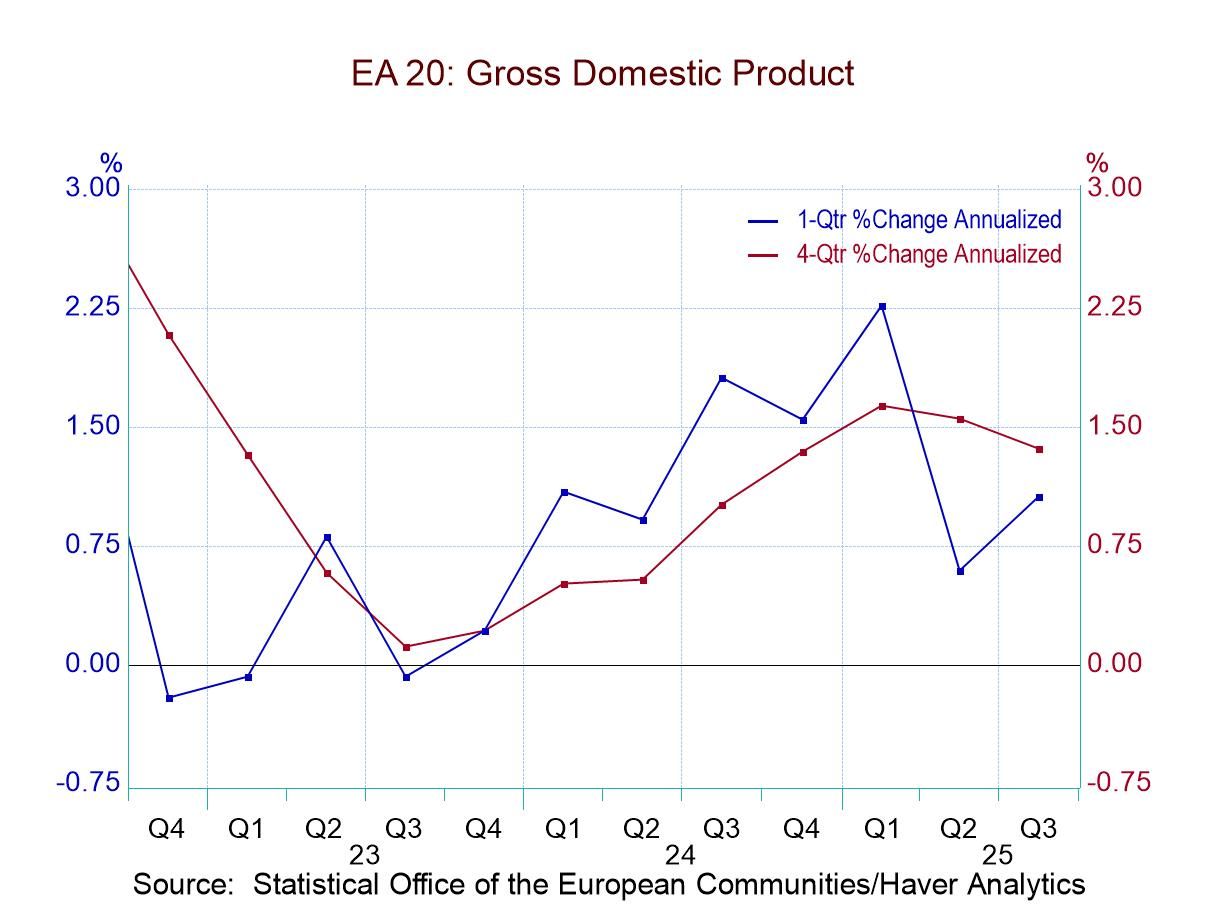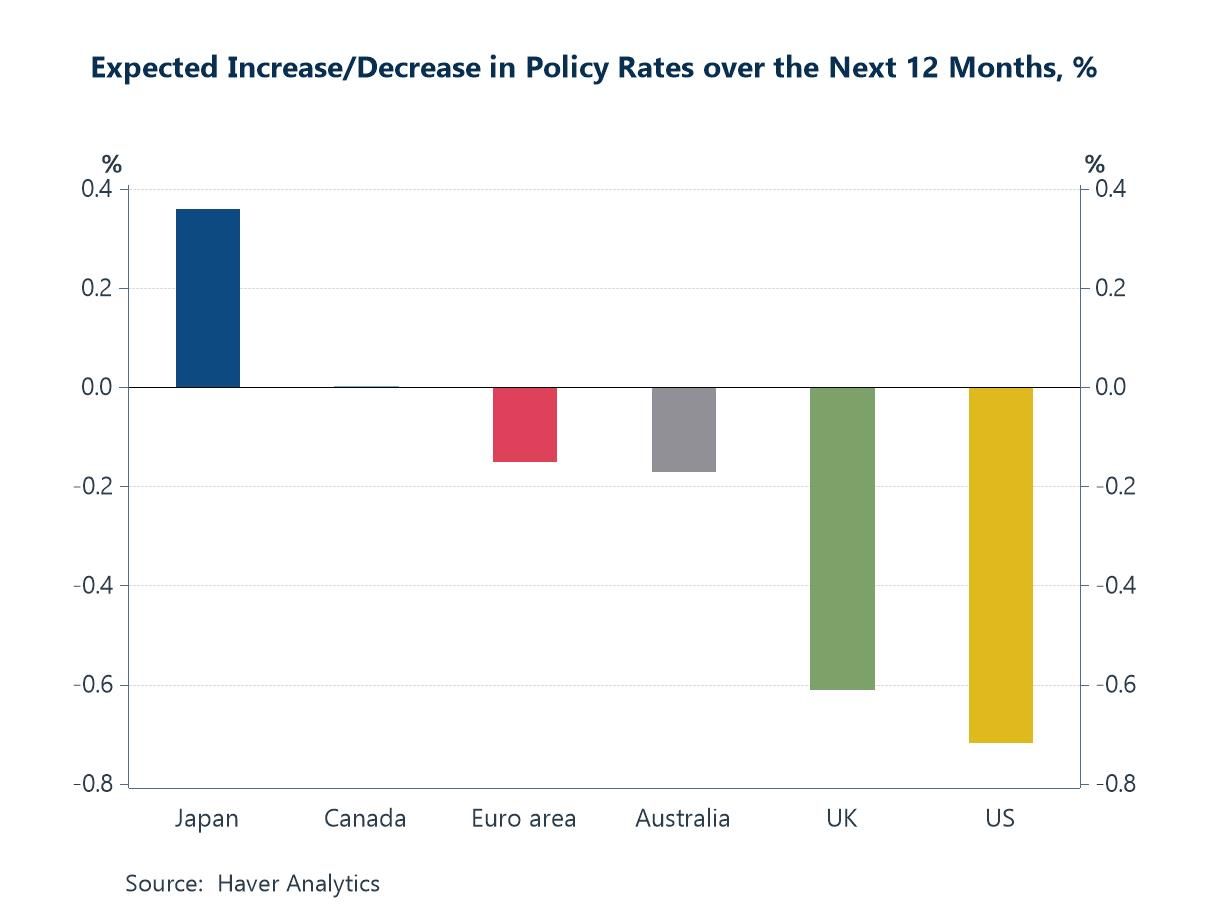 Global| Nov 22 2017
Global| Nov 22 2017U.S. Initial Claims for Unemployment Insurance Decline
by:Tom Moeller
|in:Economy in Brief
Summary
The labor market remains on a firm footing. Initial unemployment insurance applications fell to 239,000 (-4.7% y/y) during the week ended November 18, and reversed the prior week's increase. Expectations had been for 240,000 claims in [...]
The labor market remains on a firm footing. Initial unemployment insurance applications fell to 239,000 (-4.7% y/y) during the week ended November 18, and reversed the prior week's increase. Expectations had been for 240,000 claims in the Action Economics Forecast Survey. The four-week moving average rose slightly to 239,750 but remained near the record low.
The latest initial claims figure covers the survey week for November nonfarm payrolls. Claims rose 16,000 (7.2%) from the October period. During the last ten years, there has been a 74% correlation between the level of initial claims and the m/m change in nonfarm payrolls
Continuing claims for unemployment insurance increased to 1.904 million (-7.7% y/y) in the week ended November 11 from 1.868 million in the week prior. The four-week moving average of claimants held fairly steady at 1.890 million, near the lowest point since January 1974.
The insured unemployment rate rose to 1.4% from the 1.3% record low.
Data on weekly unemployment insurance are contained in Haver's WEEKLY database and they are summarized monthly in USECON. Data for individual states are in REGIONW. The expectations figure is from the Action Economics Forecast Survey, carried in the AS1REPNA database.
| Unemployment Insurance (SA, 000s) | 11/18/17 | 11/11/17 | 11/04/17 | Y/Y % | 2016 | 2015 | 2014 |
|---|---|---|---|---|---|---|---|
| Initial Claims | 239 | 252 | 239 | -4.7 | 263 | 278 | 308 |
| Continuing Claims | -- | 1,904 | 1,868 | -7.7 | 2,136 | 2,267 | 2,599 |
| Insured Unemployment Rate (%) | -- | 1.4 | 1.3 |
1.5 |
1.6 | 1.7 | 2.0 |
Tom Moeller
AuthorMore in Author Profile »Prior to joining Haver Analytics in 2000, Mr. Moeller worked as the Economist at Chancellor Capital Management from 1985 to 1999. There, he developed comprehensive economic forecasts and interpreted economic data for equity and fixed income portfolio managers. Also at Chancellor, Mr. Moeller worked as an equity analyst and was responsible for researching and rating companies in the economically sensitive automobile and housing industries for investment in Chancellor’s equity portfolio. Prior to joining Chancellor, Mr. Moeller was an Economist at Citibank from 1979 to 1984. He also analyzed pricing behavior in the metals industry for the Council on Wage and Price Stability in Washington, D.C. In 1999, Mr. Moeller received the award for most accurate forecast from the Forecasters' Club of New York. From 1990 to 1992 he was President of the New York Association for Business Economists. Mr. Moeller earned an M.B.A. in Finance from Fordham University, where he graduated in 1987. He holds a Bachelor of Arts in Economics from George Washington University.


